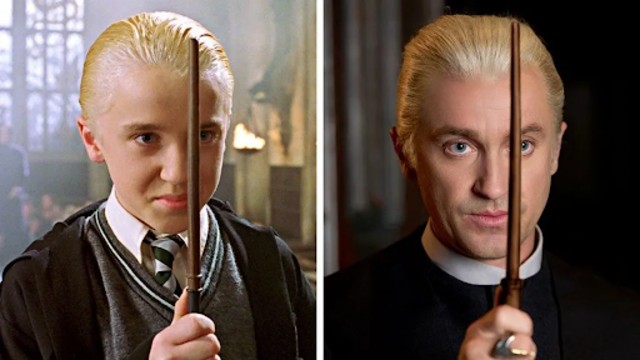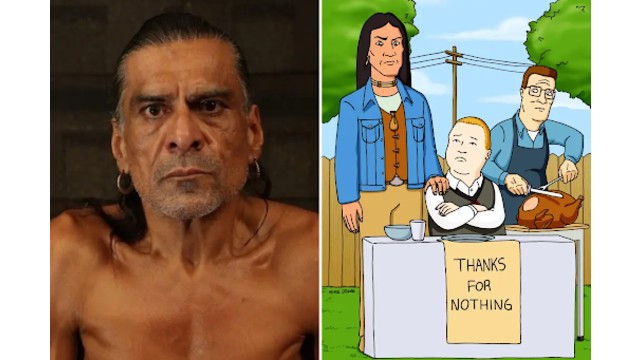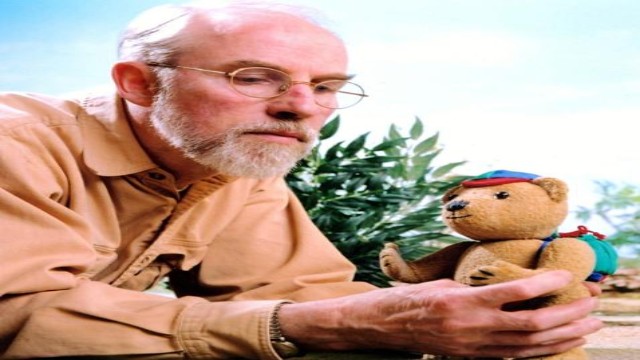
A scene from ‘The Life of Chuck’ showing Chiwetel Ejiofor, left, and Karen Gillan. (Neon via AP Photo)
Stephen King may be the master of horror, but his latest screen adaptation proves he’s also a master of heart. The Life of Chuck, based on King’s novella from his 2020 collection If It Bleeds, is set to hit select theaters this Friday and opens nationwide on June 13. But unlike his usual tales of terror, this story leans into life, love, and quiet resilience.
King’s imagination has inspired more than 50 films over the last 50 years. From Carrie to Doctor Sleep, his vivid storytelling continues to fuel Hollywood. That’s no accident—King writes with cinematic flair. His books often reference movies, and he himself is a self-proclaimed film buff.
“I love anything from The 400 Blows to Jason Statham,” King said in a phone interview from Maine. “Even the worst movie is a great way to spend an afternoon.” Except, of course, Transformers, the only movie he’s ever walked out on.
A Story That Dances Through the End of the World
The Life of Chuck begins with the world unraveling. The internet collapses. California appears to be peeling off the continent like old wallpaper. Yet in the middle of this slow apocalypse, the story zooms in on a single man’s life.
Chuck, portrayed by Tom Hiddleston, isn’t a superhero or a villain. He’s an ordinary man whose existence still manages to shine. He first appears mysteriously on a billboard, haunting a schoolteacher (played by Chiwetel Ejiofor) trying to inspire students as the world crumbles. What unfolds is a layered, moving story that celebrates the beauty of existence—even when time is running out.
King says the tale is about finding joy amid inevitable grief. “Just because someone’s life is cut short doesn’t mean it can’t be filled with joy,” he reflects.
King the Humanist, Not Just the Horror Icon
Though known for his chilling tales, King’s power lies in how he blends terror with tenderness. Director Mike Flanagan, who previously adapted Doctor Sleep and Gerald’s Game, believes King’s true genius is in his empathy.
“You forget that It isn’t just about the clown—it’s about friendship,” Flanagan says. “And The Stand isn’t about the virus. It’s about ordinary people rising together.”
The Life of Chuck reflects this softer, deeper side of King. It’s storytelling with soul—a quiet, emotional punch wrapped in the shell of an end-times narrative.
A Fiction Fueled by Real-World Worries
King has written about 80 books. His latest, Never Flinch, features Holly Gibney, a private detective wrestling with insecurity. King loves exploring characters’ growth over genre conventions. “Writing makes me happy,” King says. “It helps me release the dark stuff.”
King’s stories also reflect today’s anxieties—climate change, political tension, and social struggles. In Never Flinch, Holly protects a women’s rights activist facing violent threats, highlighting King’s engagement with real-world issues.

The Drummer Who Sparked a Story
The idea for The Life of Chuck began on Boylston Street in Boston. King saw a street drummer playing, and imagined a businessman passing by who couldn’t resist dancing. That vision turned into Chuck—a man full of hidden emotion, dancing through his final days.
King admits he dances too—but only when no one’s watching.
No Cynicism, Just Soul
Many of King’s most beloved screen adaptations—like Stand By Me and The Shawshank Redemption—are not horror stories at all. They’re character-driven, heartfelt narratives. The Life of Chuck follows in that tradition.
The film received the People’s Choice Award at last year’s Toronto International Film Festival. King even attended the premiere—his first in decades since The Green Mile in 1999. Flanagan says King sees the film as “precious” and deeply personal. “It’s a story without an ounce of cynicism,” Flanagan shares. “He wanted to protect it.”
The Story That Means Something
King continues to create with no signs of slowing down. He’s working on Talisman 3, and new series adaptations like Welcome to Derry and The Institute are on the way. But The Life of Chuck stands apart. It’s intimate. It’s reflective. It’s Stephen King at his most sincere.
As the story reminds us—through the words of Walt Whitman—Chuck, like all of us, “contains multitudes.” So does King. And maybe, that’s what keeps readers—and viewers—coming back for more.















